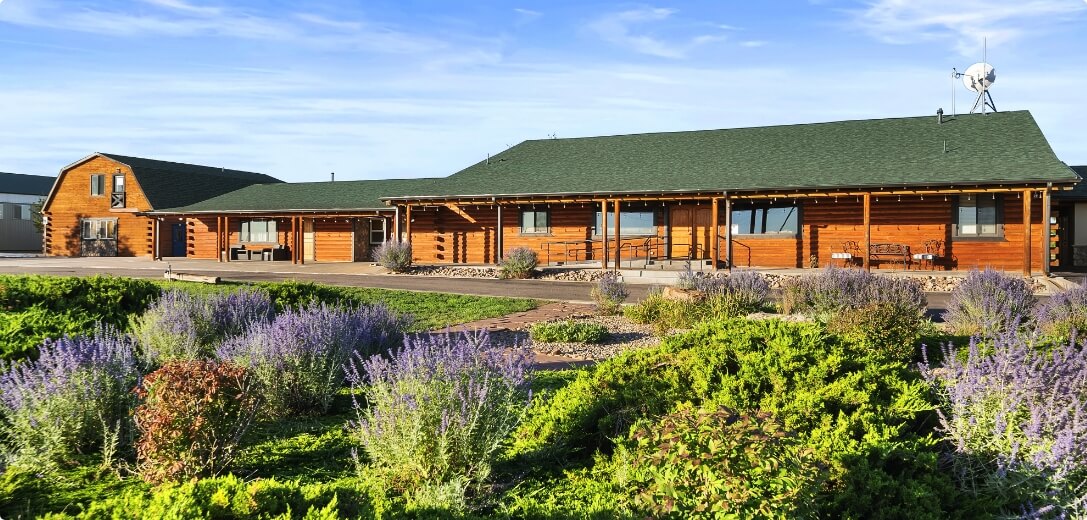
It’s a feeling you’re all too familiar with. The pit of your stomach is telling you that something isn’t quite right. Your body is hinting that something bad is about to happen. But you’re feeling it constantly. Your stress and worries feed this feeling until you’re left frozen and overwhelmed.
If you recognize this scenario, it’s possible that you’re one of the 40 million adults in the U.S. with an anxiety disorder. Although anxiety may try to convince you otherwise, you’re not alone. You want to make a positive change, and the natural ways to relieve anxiety are gaining in popularity.
Natural anxiety relief has a variety of benefits. But for people suffering from a dual diagnosis disorder, the natural approach offers the peace of mind of not having to worry about the effects of prescription medicines. In this post, we’ll explore 5 natural ways to cope with anxiety.
1. Meditation
Anxiety is erratic in nature. So, the first step in anxiety management is often understanding. Meditation is a way to quiet your mind to identify the thought patterns that are fueling your anxiety. Think of meditation as a form of acceptance. Instead of fighting against your anxious thoughts, you learn to recognize their flow.
In fact, research has shown that regular meditation helps forge new neural pathways in the brain. The end result is you becoming better at regulating your emotions. Over time, you can teach yourself to identify your irrational anxiety-driven thoughts and confront them in a safe place.
If you’re interested in this form of natural anxiety relief, start with guided meditation to learn the basics.
2. Journaling
Journaling is one of the easiest natural ways to cope with anxiety. All you need to get going is a way to record your thoughts. But what makes journaling so effective? It all starts with anxious thoughts.
When left unchecked, your anxious thoughts begin to ruminate in your mind. They can build momentum and become overwhelming. Journaling is a way to shine a light on those anxious thoughts and examine them. With practice, you’ll be able to identify your triggers and cognitive distortions.
To get started, write down what’s bothering you, including any concerns or fears. From there, list actions you can take to improve the situation or feeling you wrote down.
3. Eat a Healthy Balanced Diet
Did you know that your diet can have an effect on your anxiety? Having a healthy diet can lower the intensity of your anxiety. Start by making sure you drink enough water while limiting the amount of caffeine and sugar in your diet.
But the dietary considerations for anxiety don’t stop there. For example, because they metabolize slowly, complex carbohydrates can help balance your blood sugar and create a calming feeling. You’ll want to be sure not to skip any meals. Drops in your blood sugar can worsen your underlying anxiety.
And if you or a loved one is struggling with a dual diagnosis disorder, the pro-recovery diet is worth considering. It has many of the same pillars as an anxiety diet with extra help built in for those in recovery.
4. Practice Effective Time Management
People with anxiety can get a spike from being too busy or not having enough to do. That’s why time management skills are one of the best natural ways to cope with anxiety. Whether it’s work, family commitments or personal activities, having a plan can help reduce anxiety.
The essence of effective time management is finding ways to focus on one thing at a time. Use online calendars or a planner to help map out your day. If you see a big gap of time, brainstorm proactive activities like exercising to fill it in.
If you find yourself too busy, try breaking up bigger tasks into smaller pieces. This can help limit the amount of anxiety you feel as you work towards finishing your tasks.
5. Spend Time with Animals
Looking for natural ways to relieve anxiety? One of the answers rests with our four-legged friends. Pets like dogs and cats offer unconditional love, companionship and support. Many studies have proven that animals are beneficial to people who have an anxiety disorder.
There’s a certain healing phenomenon that takes place when you’re caring for a pet. Your support for them is reciprocated with love and affection. In fact, that’s why The Raleigh House’s dual diagnosis treatment can include equine therapy.
Don’t have a pet? No problem. Do some research in your area on volunteering for a local animal rescue. You’ll get to spend time with and help animals, and they will enjoy your company as much as you enjoy theirs.
Dual Diagnosis Treatment at The Raleigh House
It’s not uncommon for people struggling with an anxiety disorder to cope using drugs or alcohol, which can lead to addiction. While drugs or alcohol can provide temporary relief, they work against your long-term physical and mental health.
At The Raleigh House, our dual diagnosis treatment targets your addiction, while also helping you find ways to manage your anxiety without the use of drugs or alcohol. We know that dealing with anxiety and substance abuse can be challenging. But our residential treatment center has a full continuum of care and is ready to help.
Contact The Raleigh House for Anxiety and Addiction Treatment
Anxiety and addiction can co-exist, and it can be difficult to understand without professional help. If you or a loved one are suffering from anxiety and substance abuse, contact our team today. We’re happy to answer any questions and tell you more about how our treatment programs can help you on the path to healing.
FAQs About Anxiety & Addiction
What Role Gender Differences Play in Anxiety?
What is Intensive Outpatient Anxiety Treatment?
Can Anxiety Be Treated without Benzos?
How Are Depression and Anxiety Disorders Related?
What is the Link Between Alcohol and Anxiety?
What Foods Can Help Depression and Anxiety?
What are the Causes of Generalized Anxiety Disorder?
Do I Have an Anxiety Disorder?
How to Stop an Anxiety Attack?
Can Hypnosis Work to Treat Depression and Anxiety?
How Music Can Lower Stress and Anxiety?
How Anxiety and Depression Affect Brain Chemistry?
What Are the Physical Effects of Anxiety?
What are the Symptoms of Physical Anxiety?
How to Manage Anxiety in Early Recovery?

